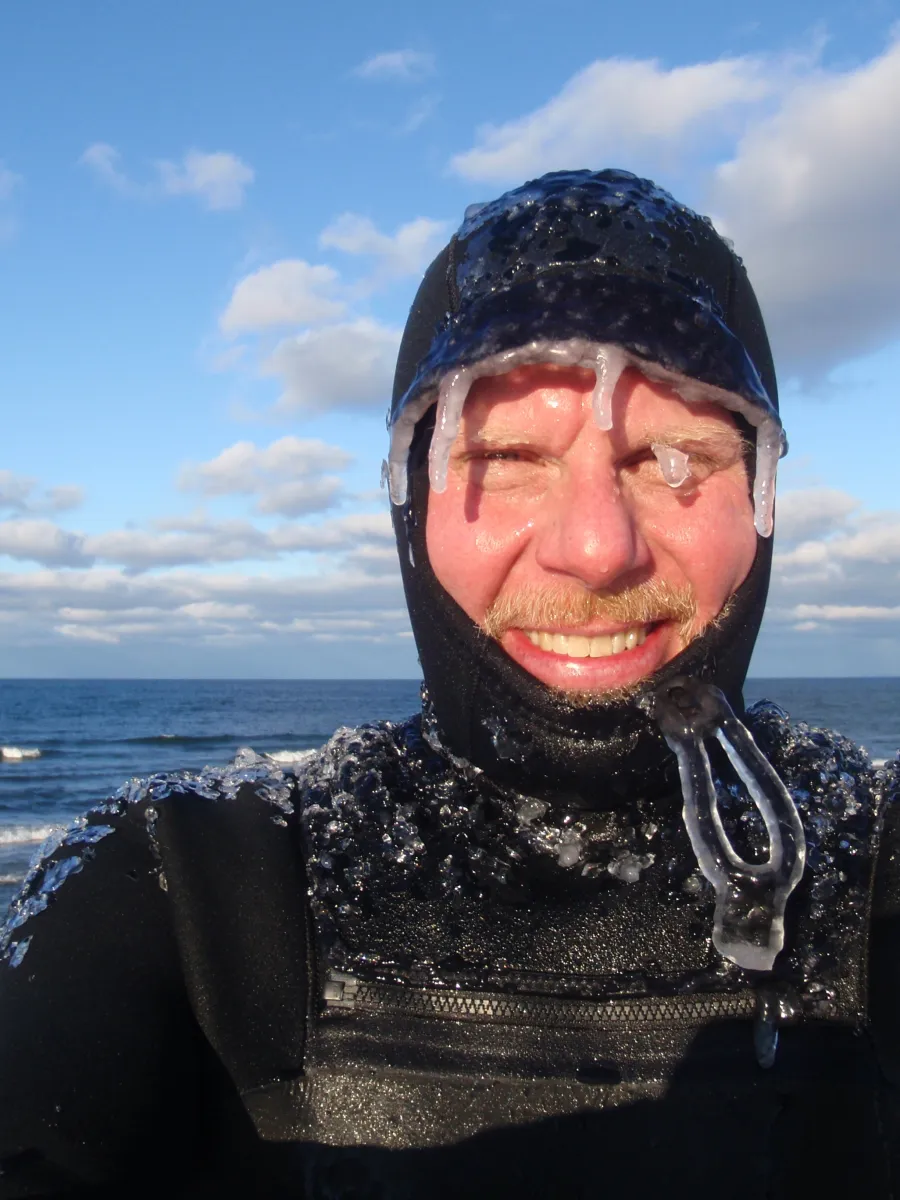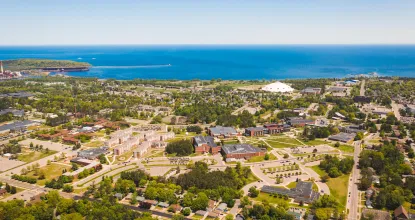Roger (Mac) Strand
Professor
Contact Information:
2121 Weston Hall
Phone (906) 227-2365
Email: rostrand@nmu.edu
Education:
- Michigan State University, Ph.D. 1996
- University of Minnesota, M.S. 1990
- Gustavus Adolphus College, B.A. 1985
Research Interests:
Lake Superior Surf Zone Ecology
The wind-exposed nearshore zone of Lake Superior is home to a community of insects uniquely adapted to life in the freshwater surf. Prior to the invasion and spread of Dreissena mussels in the late 1980s, surf zone insect communities occurred throughout the Great Lakes. Although few surveys have been published, it appears that many once-common native surf zone species have disappeared from habitats now blanketed in mussels. Dreissena mussels remain rare in Lake Superior, being largely restricted to protected nearshore areas near shipping ports. We are particularly fortunate at NMU to be located along a vast expanse of easily accessible surf zone habitat that is populated by a diverse assemblage of native insect species, most of which have not been studied in any detail. Our efforts in recent years have been on focused on an abundant net-spinning caddisfly species with an evolutionary history in large glacial lakes extending deep into the Pleistocene.
Headwater Stream Ecology
Many northwoods watersheds arise from spring-fed rivulets that merge into dendritic patterns before joining larger channels. Despite their obvious importance to downstream water quality, these little streams, most of which are unnamed and poorly mapped, are not covered by regulations that protect downstream reaches from habitat damage. We are currently studying the aquatic insect communities in several of these mini-watersheds near the NMU campus. Specific projects feature analyses of chironomid midge abundance patterns, diversity, and trophic ecology in a complex mini-watershed and a multi-watershed assessment of the influence of stream network architecture on headwater aquatic insect communities.
My over-arching research objective is to tell the stories of these little streams, and also those of the Lake Superior surf zone, by revealing the identities and life histories of the animals that call them home.
Thimbleberry Gall Insects
Thimbleberries (Rubus parviflorus) are a familiar, summer delicacy for residents of the Upper Peninsula. Almost anywhere you go to pick them, you will also see large, tumorous growths occurring on the thimbleberry canes. These are galls formed by the thimbleberry gall wasp, Diastrophus kincaidii. Like other gall wasps, D. kincaidii supports multi-species assemblages of parasitoids and hyperparasitoid wasps. My colleague, Dr. Michael Rotter, and I are working to reveal the identities and inter-relationships of these fascinating little wasps and to understand the biogeographic and bioenergetic factors and constraints that produce and maintain their symbiotic assemblages.
Selected Publications:
- Miess, S. and M. Strand. 2025. From stream to surf zone: differences in the composition and succession of Lake Superior macroinvertebrate communities. Journal of Great Lakes Research. In Press.
- Miess, S., A. Chrisekos, and M. Strand. 2022. An ecological profile of Hydropsyche alternans (Trichoptera: Hydropsychidae) in Lake Superior, the last stronghold of a once-dominant Great Lakes surf zone caddisfly. Insects 13(7): 659. Open Access Link: https://doi.org/10.3390/insects13070659
- Rotter, M.C. and M. Strand. 2016. The biogeography of a disjunct plant-insect relationship: thimbleberry and Diastrophis kincaidii (Hymenoptera: Cynipidae) in the Great Lakes Region. The Great Lakes Entomologist 49: 7-17. PDF
- Skelton, J. and M. Strand. 2013. Trophic ecology of a freshwater sponge (Spongilla lacustris) revealed by stable isotope analysis. Hydrobiologia 709: 227-235. PDF
- Hunt, R.J., M. Strand, and J.F. Walker. 2006. Measuring groundwater-surface water interaction and its effect on wetland stream benthic productivity, Trout Lake watershed, northern Wisconsin, USA. Journal of Hydrology 320: 370-384. PDF
- Strand, M. 2005. Trophic ecology of the Lake Superior wave zone: a stable isotope approach. Hydrobiologia 544: 271-278. PDF
- Strand, R.M. and R.W. Merritt. 1999. Impacts of livestock grazing activities on stream insect communities and the riverine environment. The American Entomologist 45: 13-29.
- Strand, M., D.A. Herms, M.P. Ayres, M.E. Kubiske, M.G. Kaufman, E.D. Walker, K.S. Pregitzer, and R.W. Merritt. 1999. Effects of atmospheric CO2, light availability, and tree species on the quality of leaf detritus as a resource for treehole mosquitoes. Oikos 84: 277-283.

